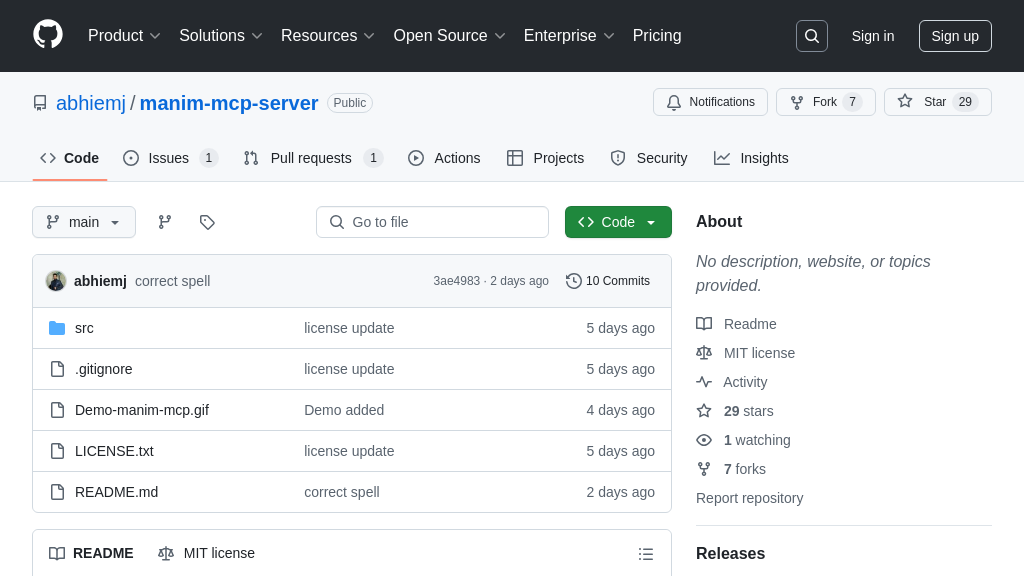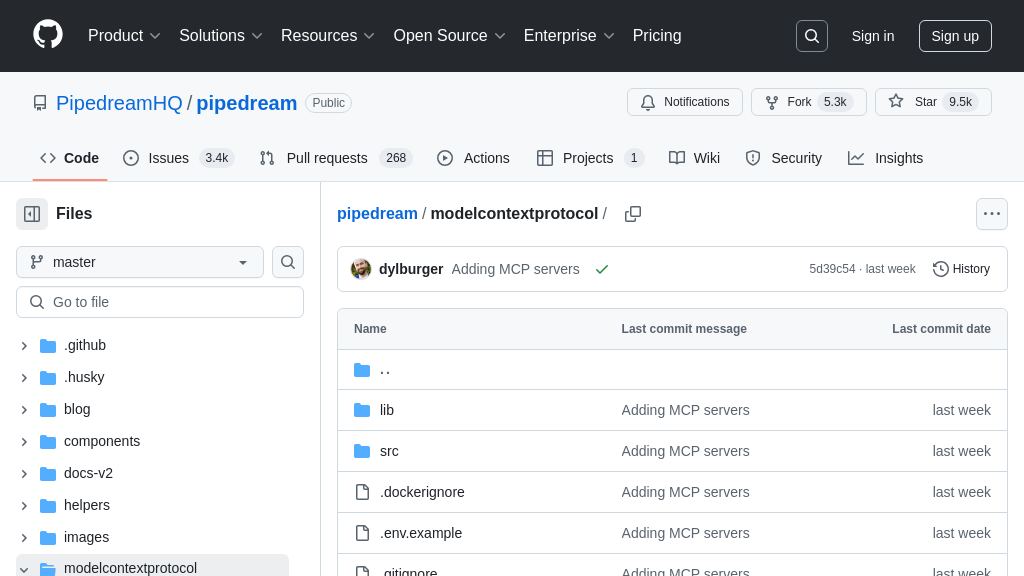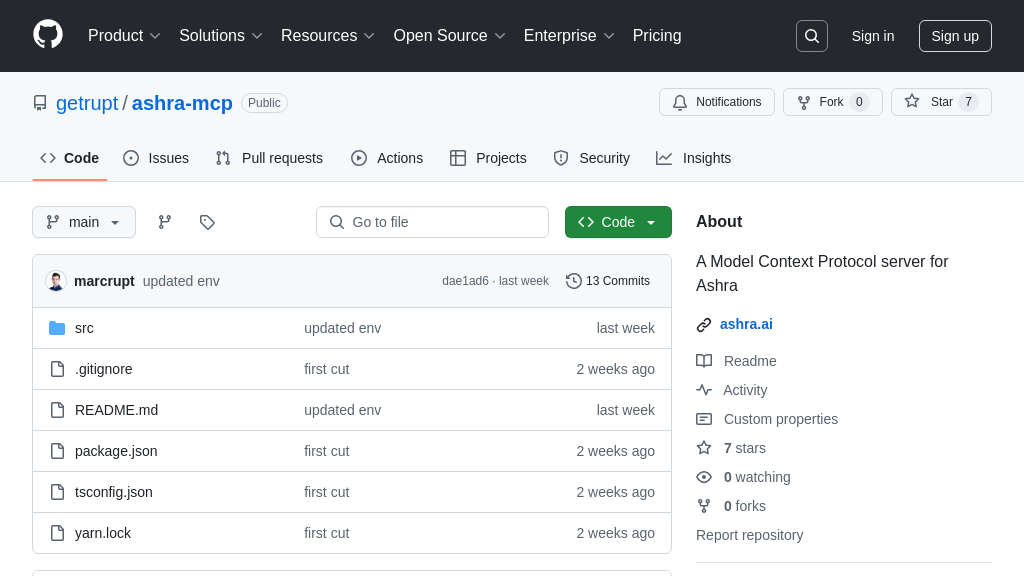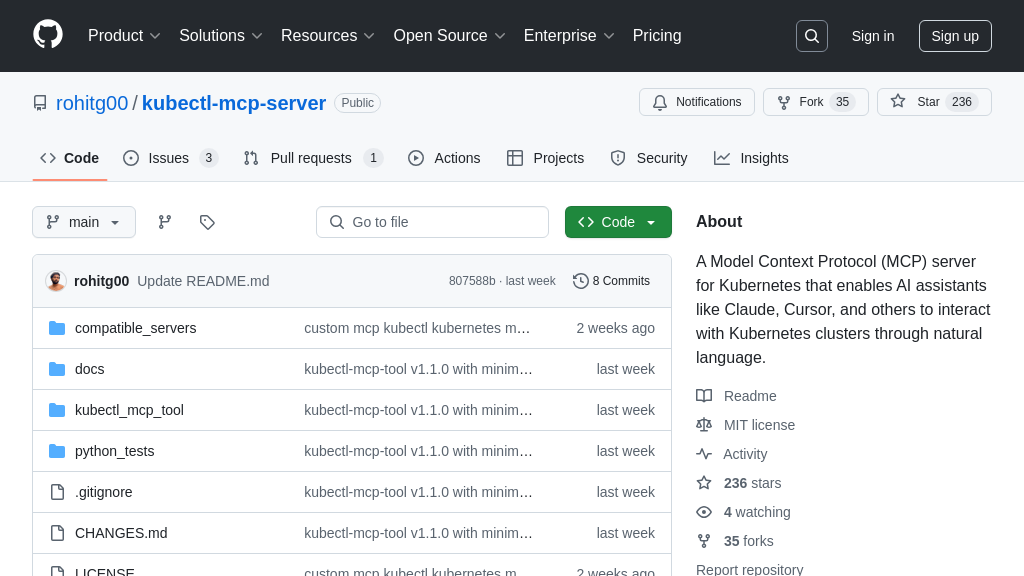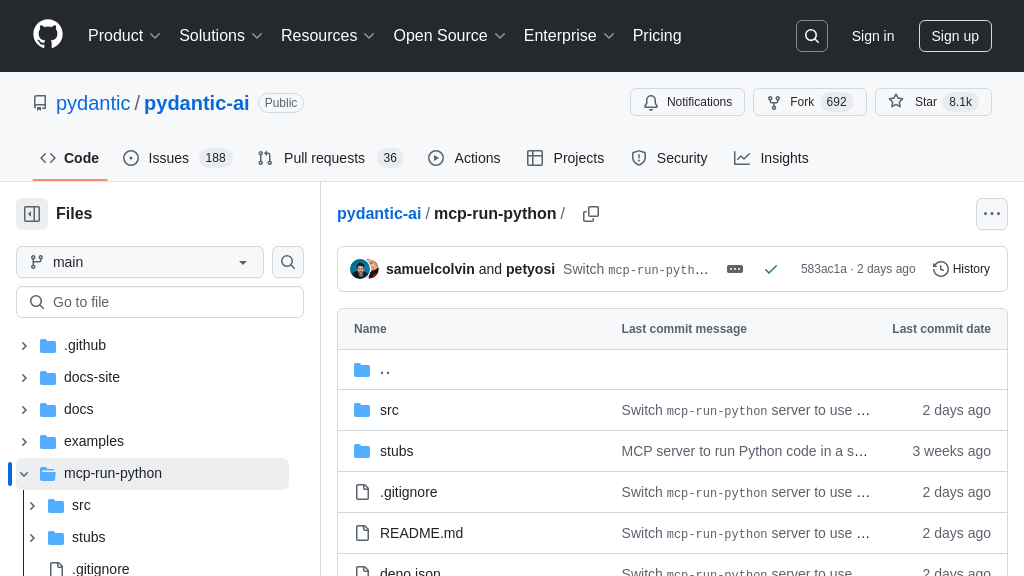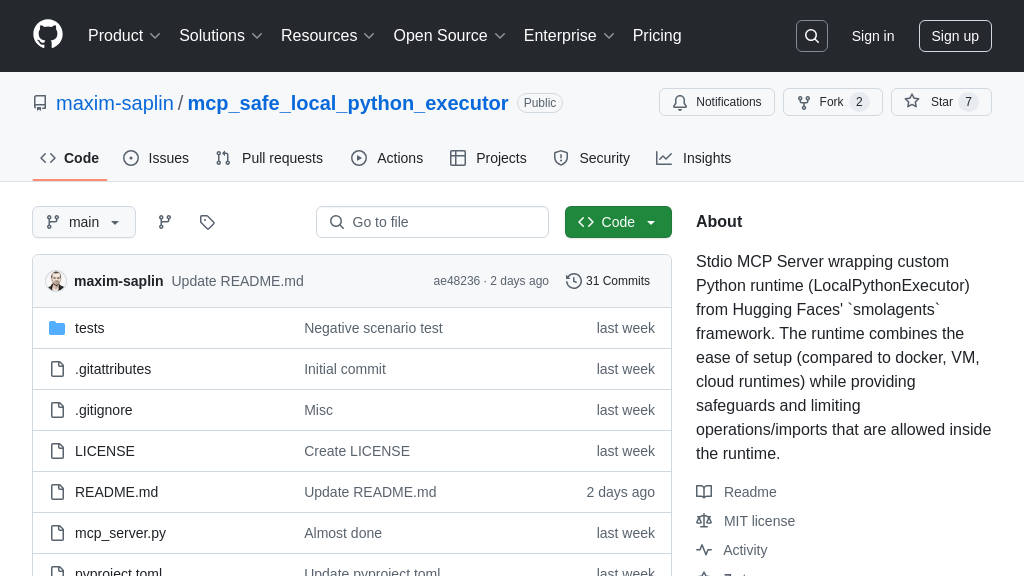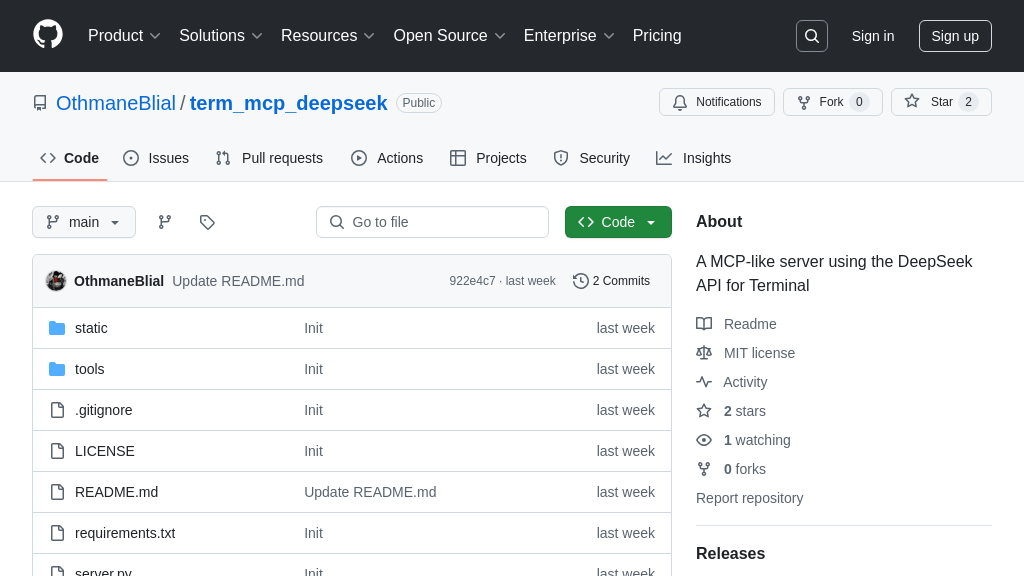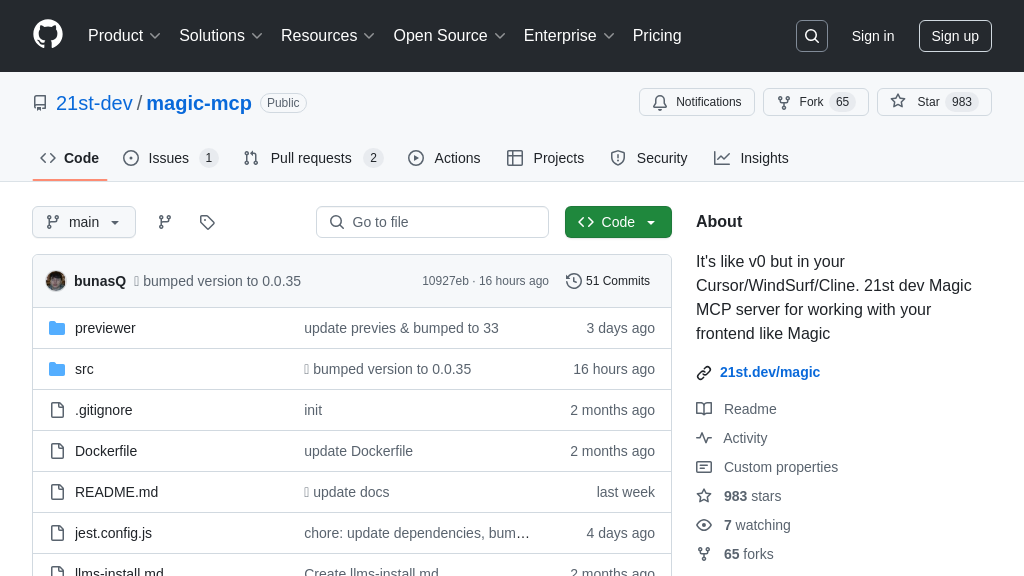godoc-mcp
godoc-mcp: An MCP server for efficient Go documentation access, boosting LLM performance with minimal token usage.
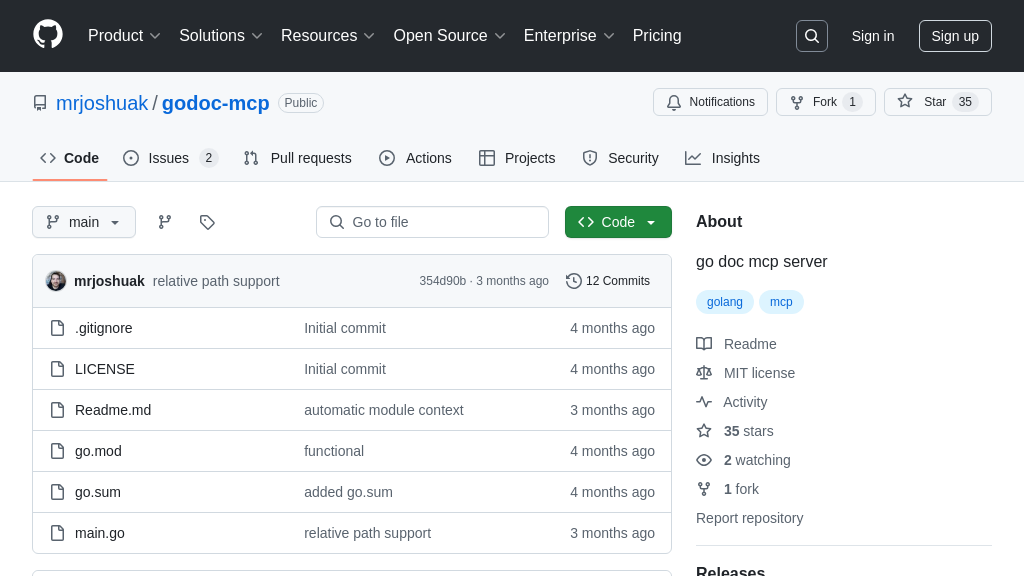
godoc-mcp Solution Overview
godoc-mcp is an MCP server designed to provide AI models with efficient access to Go package documentation. By delivering structured, official documentation, it significantly reduces token usage compared to reading entire source files, accelerating Go development with LLMs. This server excels at project navigation, smartly handling multi-package projects and offering flexible path support for both local files and import paths.
A key advantage is its automatic module context creation, eliminating manual setup for external packages. godoc-mcp integrates seamlessly with other MCP servers, enabling comprehensive code analysis. Features like built-in response caching and optimized token usage ensure high performance. Developers can use it to explore projects, understand package interfaces, and get implementation guidance, all while benefiting from its local operation and module-aware capabilities. It empowers AI models to understand Go code more effectively, leading to faster and more accurate development assistance.
godoc-mcp Key Capabilities
Token-Efficient Documentation Retrieval
godoc-mcp excels at providing AI models with only the essential Go documentation, drastically reducing token consumption. Instead of feeding the entire source file to the model, it extracts and delivers the official package documentation. This targeted approach is crucial for cost-effective AI-driven Go development, as it minimizes the number of tokens required for the AI to understand and utilize Go packages. The server achieves this by leveraging the go doc command-line tool, filtering the output, and intelligently formatting it for optimal consumption by LLMs. This efficiency is particularly beneficial when working with large projects or complex APIs, where the token savings can be substantial.
For example, instead of providing an LLM with the entire source code of the io package, godoc-mcp can extract and provide only the documentation for the Reader interface, significantly reducing the token count.
Smart Package and Project Navigation
godoc-mcp simplifies how AI models understand Go projects, especially those with multiple packages. It intelligently handles project structures, allowing the AI to navigate and comprehend the relationships between different packages within a project. When pointed to a directory without Go files, it lists available Go packages in subdirectories, providing a clear overview of the project's organization. This feature is invaluable for AI models tasked with understanding the architecture and dependencies of a Go project, enabling them to provide more accurate and context-aware assistance.
Imagine an AI model assisting with a large Go project. Instead of manually exploring the directory structure, the AI can use godoc-mcp to quickly identify and understand the purpose of each package, streamlining the development process.
Automatic Module Context Management
godoc-mcp automates the setup of module context for external Go packages, eliminating the need for manual configuration. It creates temporary Go projects when necessary, automatically setting up the module environment and handling cleanup. This feature simplifies the process of accessing documentation for third-party packages, as the AI model doesn't need to be concerned with the underlying module management. This is particularly useful in environments where the AI model is operating in isolation or doesn't have direct access to the project's build environment.
For instance, when an AI model needs to understand the documentation for a package like github.com/gorilla/mux, godoc-mcp automatically creates a temporary Go project, resolves the dependency, and provides the documentation without requiring any manual setup.
Flexible Path and Target Support
godoc-mcp offers flexible path support, accepting both local file paths (e.g., /full/path/to/mypackage) and import paths (e.g., io, github.com/user/repo). This allows developers to query documentation using familiar Go conventions. Furthermore, the target parameter allows specifying a specific symbol (function, type, etc.) to document, enabling focused retrieval of information. The cmd_flags parameter allows passing additional flags to the go doc command, such as -all to show unexported symbols or -src to show the source code.
For example, a developer can use the path io.Reader with the target Read to get documentation for the Read method of the io.Reader interface, or use the -src flag to view the source code of a specific function.
Performance Optimization and Caching
godoc-mcp incorporates several performance optimizations to ensure fast and efficient documentation retrieval. It includes built-in response caching to minimize redundant requests, efficient token usage through focused documentation retrieval, and smart handling of standard library versus external packages. The server also provides metadata about response sizes, allowing clients to make informed decisions about how much data to request. These optimizations are crucial for minimizing latency and maximizing the throughput of documentation requests, especially in high-volume environments.
For example, frequently accessed documentation, such as the io.Reader interface, is cached to reduce the load on the underlying go doc command and improve response times.
